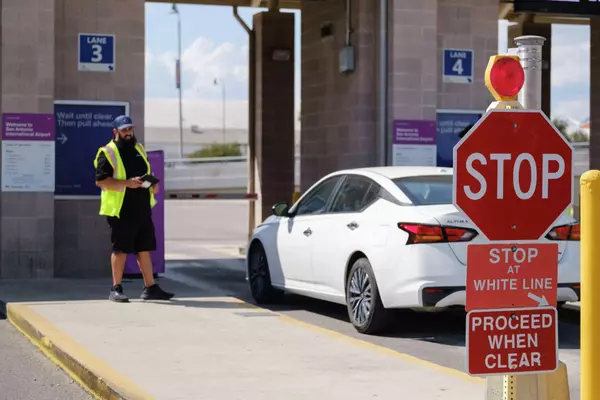Everything You Need to Know About Real Estate Appraisals

Real estate appraisals are a cornerstone of the home buying, selling, and refinancing process. Whether you're a first-time buyer securing a mortgage, a seller hoping to close a deal, or a homeowner tapping into equity, understanding appraisals can help you navigate this critical step with confidence. In this comprehensive guide, we'll break down the appraisal process, costs, timelines, and more, while addressing key questions like how long it takes in Texas, what appraisers check in San Antonio, VA loan specifics, preparation tips, and handling low appraisals. By the end, you'll be equipped to make informed decisions.
What Is a Home Appraisal and Why Does It Matter?
A home appraisal is an unbiased estimate of a property's fair market value, conducted by a licensed professional appraiser. It's typically required by lenders to ensure the loan amount doesn't exceed the home's worth, protecting both the buyer and the institution from overpaying.
Appraisals aren’t the same as home inspections. While inspections flag safety issues and repairs, appraisals focus on value through condition, location, and comparable sales ("comps").
In essence, the appraisal bridges the gap between your offer price and the lender's risk assessment. If you're financing a purchase, expect to pay $300–$900 for an appraisal, depending on location and home size. Sellers rarely cover this cost, but it can influence negotiations.
The Home Appraisal Process: Step by Step
Appraisals follow a structured process to ensure objectivity, governed by standards like the Uniform Standards of Professional Appraisal Practice (USPAP). Here's how it unfolds:
-
Assignment and Preparation – Your lender orders the appraisal after your offer is accepted. An independent appraiser (often via an Appraisal Management Company for impartiality) is assigned. They’ll review public records, MLS data, and comps, recent sales of similar homes within a half-mile radius.
-
On-Site Inspection – The appraiser visits for 30 minutes to a few hours, measuring square footage, photographing rooms, and noting features like layout, updates, and condition. Exterior elements (roof, yard) are also evaluated.
-
Market Analysis – Using three approaches to value, sales comparison (most common for homes), cost (replacement value minus depreciation), and income (for rentals)—the appraiser reconciles data into a final opinion.
-
Report Delivery – You receive a detailed report (10–20 pages) within 1–3 weeks, outlining the value and rationale. Lenders review it before approving your loan.
The entire process typically takes 1–3 weeks from order to completion, though high-demand areas like San Antonio and other Texas markets can extend this.
What Do Appraisers Look For in a San Antonio Home Appraisal?
Appraisers assess value holistically, focusing on:
-
Location and Comps – Proximity to amenities, school quality, and recent sales of similar homes. In San Antonio, this might mean comparing homes in Alamo Ranch, Stone Oak, or Alamo Heights.
-
Condition and Updates – Structural integrity, roof age, HVAC systems, and recent renovations.
-
Size and Layout – Square footage, room count, garage space.
-
Curb Appeal – Landscaping and exterior maintenance.
In San Antonio, Texas, local factors like flood zones near the San Antonio River, energy efficiency upgrades for hot summers, and community amenities (like pools in master-planned neighborhoods) all impact value.
How Long Does a Real Estate Appraisal Take in Texas?
In Texas, the on-site visit lasts 30 minutes to several hours, depending on home size. The full process, from order to report, spans 1–3 weeks, influenced by appraiser demand in booming markets like San Antonio, Dallas, and Houston.
The Texas Appraiser Licensing and Certification Board (TALCB) ensures certified appraisers handle assignments efficiently, but backlogs can add days. For quicker turnaround, opt for a drive-by in low-complexity cases.
VA Loan Appraisal Requirements for Veterans Buying a Home
VA loans, a perk for eligible veterans, require appraisals to confirm value and meet Minimum Property Requirements (MPRs) for safety and livability. Key requirements include:
-
Structural Soundness – No major defects in the foundation, roof (must last 2–5 years), or utilities.
-
Safety Features – Working smoke detectors, handrails, and no hazards like peeling lead paint.
-
Livability – Adequate heating, waterproofing, and space (e.g., no overcrowding).
-
Value Cap – The loan can’t exceed the appraised value or purchase price (whichever is lower); no down payment is needed if you have full entitlement.
In San Antonio, VA appraisals often take 7–10 days, though timing depends on appraiser availability. Always include an Escape Clause in contracts to back out penalty-free if the appraisal comes in low.
Tips to Prepare Your House for a Real Estate Appraisal
A little prep can boost your value by 5–10%—focus on first impressions and functionality. Here's a checklist:
| Category | Tips | |
|---|---|---|
| Curb Appeal | Mow lawn, trim bushes, power-wash siding/driveway. Add mulch/flowers; remove dead trees. | |
| Interior Clean | Declutter rooms, closets, and garage. Deep-clean floors, windows, and appliances. | |
| Repairs | Fix leaks, loose handles, and burnt bulbs. Ensure HVAC and roof are operational. | |
| Updates | Fresh paint in neutral tones; highlight recent upgrades (provide receipts). | |
| Docs & Access | Compile an improvement list for the appraiser; secure pets; provide comps via your agent. |
Avoid over-staging—authenticity wins. In Texas heat, emphasize AC efficiency.
What Happens If a Home Appraisal Comes in Low?
Low appraisals (about 10% of cases) occur due to outdated comps, market shifts, or overlooked upgrades. Since lenders won’t finance above the appraised value, here are your options:
-
Renegotiate Price – Ask the seller to drop the price to match the appraised value; common in buyer-friendly markets.
-
Cover the Gap – Increase your down payment to bridge the difference (e.g., $10K on a $300K home).
-
Challenge It – Provide evidence (better comps, photos) for a reconsideration; request a second appraisal ($300–$500).
-
Walk Away – Use your appraisal contingency to exit without losing earnest money.
For VA loans, the Tidewater Initiative allows agents to submit comps before the appraiser finalizes the report, a key benefit for veterans in San Antonio’s competitive housing market.
Appraisals demystify value, safeguard investments, and keep deals fair. In Texas hotspots like San Antonio, local nuances such as historic districts, flood zones, and neighborhood amenities amplify their importance.
Partner with a knowledgeable local agent who understands both San Antonio market trends and VA loan guidelines. Prepare your home proactively, review comps early, and remember: a low appraisal might save you from overpaying.
Ready to buy or refinance in San Antonio, Texas? Let’s talk about your next move.
📞 Call me at (210)-882-8583
📧 Email: gobealgroup@gmail.com
🌐 Visit: www.veteranrealestatesa.com
Christopher Beal, Realtor | Veteran Real Estate San Antonio: The Beal Group | Best Veteran Realtor in San Antonio, TX
Categories
Recent Posts











